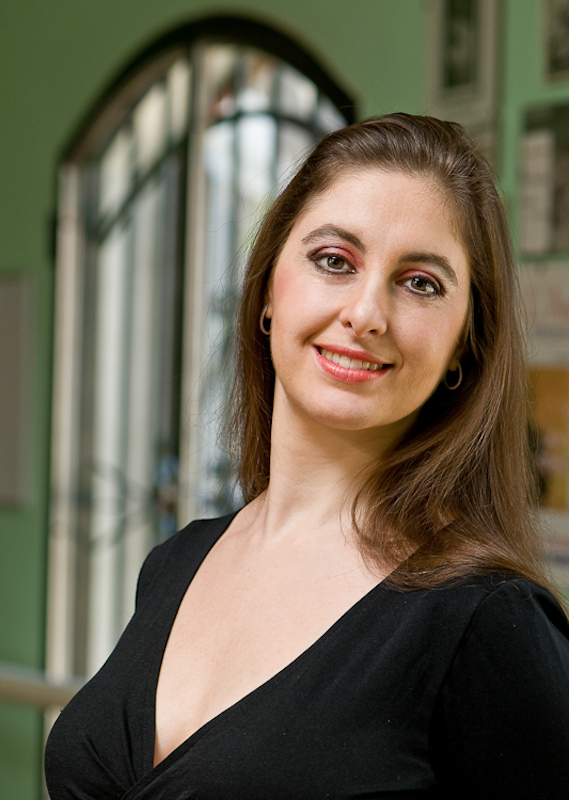BIO
Originally from Argentina, Anabella Lenzu is a dancer, choreographer, scholar & educator with 35 years of experience working in Argentina, Chile, Italy, and the USA.
Lenzu directs her own company, Anabella Lenzu/DanceDrama, which since 2006 has presented 400 performances, created 15 choreographic works and performed at 100 venues, presenting thought provoking and historically conscious dance-theater in NYC.
As a choreographer, she has been commissioned all over the world for opera, TV programs, theatre productions, and by many dance companies. She has produced and directed several award-winning short dance films and screened her work in over 200 festivals both nationally and internationally, including Argentina, Bolivia, Brazil, Canada, Cyprus, France, Germany, Greece, India, Indonesia, Ireland, Italy, Kenya, London, Mexico, Norway, Poland, Portugal, Romania, Serbia, Spain, Switzerland, United Kingdom, United States & Venezuela.
Anabella’s work has been seen at La Mama, Baryshnikov Arts Center, Movement Research at Judson Church, Draftworks at DanceSpace project/ St. Mark Church, 92nd Street Y, HERE Arts Center, Abrons Arts Center, DUO Multicultural Arts Center, Queens Museum, Bronx Museum, Gibney Dance, Center for Performance Research, Triskelion, Chez Bushwick, Roulette, Chashama, Dixon Place, Sheen Center, The Consulate of Argentina in NYC, NYU/Casa Zerilli Marimo, University Settlement, Baruch Performing Arts Center, BAAD, Snug Harbor Cultural Center, Instituto Cervantes, 3LD Center for Art & Technology, Kumble Theater/Long Island University, among many others. She has received grants from NYSCA, Brooklyn Arts Council, Harkness Foundation for Dance, Puffin Foundation, Rockefeller Brothers Fund, Foundation for Contemporary Arts Emergency Grant, Edwards Foundation, The Vermont Community Foundation, and the Independent Community Foundation.
She holds a MFA in Fine Arts (concentration in Choreography) from Wilson College, PA. Classically trained at the renowned Teatro Colòn in Buenos Aires, Lenzu studied the modern dance techniques of Humphrey/Limòn and Graham in New York. Her studies of Tango and the folkdances of Argentina, Spain, and Italy, further inform her work.
Lenzu founded her own dance school L’Atelier Centro Creativo de Danza in 1994 in Argentina, and as an educator for more than 30 years, she has been teaching in more than 50 institutions, including universities, professional dance studios, companies, festivals, and symposiums in the USA, Canada, Ireland, Egypt, Australia, Panamá, Mexico, Argentina, Brazil, Chile, London, and Italy.
In 2023, Anabella received the National Award for Outstanding Leadership in the Independent Sector by NDEO (National Dance Education Organization) and in 2022, the Innovative Dance Educator Award by NYSDEA (New York State Dance Education Association), acknowledging her work as a dance educator who develops innovative pedagogy in the dance field, groundbreaking teachings that have a significant impact on dance, as well as an established record of exemplary leadership on the state and national level in USA.
Lenzu has written for various dance and arts magazines and published her first book in 2013, entitled Unveiling Motion and Emotion. The book contains writings in Spanish and English on the importance of dance, community, choreography, and dance pedagogy. Her second book, Teaching Dance through Meaningful Gestures (2025), explores how technique is a philosophy and a theory, and how the body is an instrument for expression.
In October 2024, Anabella was appointed president of the American Dance Guild, dedicated to supporting artists and bringing the dance community together since 1956.
She was an advisory board member of Peridance Center, The Brick Theater, and IDACO (Italian Dance Connections Festival) in New York, as well as part of the Host Committee for New Yorkers for Culture and Arts (NY4CA). Anabella served on the Selection Committee for the Bessie’s Awards from 2020-2024.
She regularly serves on selection panels for national and international grants, residencies, festivals, and other funding organizations.
Currently, Lenzu conducts classes at NYU Gallatin, the School of Visual Arts, and Peridance Center. From 2020 to the present, she created and directed the Online Choreographic Mentorship Program.
“Lenzu has been described as an “Argentine firecracker” which nicely sums up her large, passionate nature as well as her intense commitment to the creative process. She has developed a beautifully integrated approach to dance and theater which will continue to serve her and her fine company going forward.”


